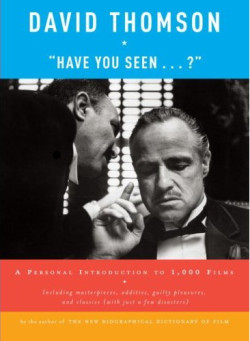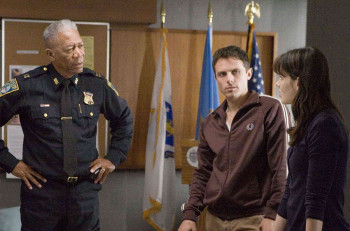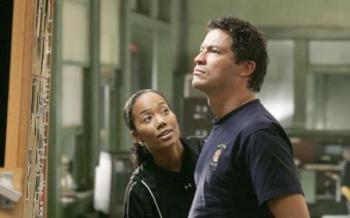Box Office Power Rankings: May 1-25, 2009
 The conventional wisdom says that among the early entrants in the summer 2009 sweepstakes, Star Trek is a hit (and a winner in its first three weekends in our Box Office Power Rankings), Wolverine is a disappointment, and nobody cares about Angels and Demons. Yet X-Men Origins: Wolverine had the biggest North American opening of the three: $85 million. These evaluations are muddied by so many variables that it’s difficult to cut through the crap. But one simple measure is second-weekend drop-off, generally considered a reliable indicator of a movie’s staying power. So: Wolverine dropped 69.0 percent from $85 million; Star Trek dropped 42.8 percent from $75 million; and Angels and Demons dropped 53.0 percent (not counting the Monday holiday) from $46 million.
The conventional wisdom says that among the early entrants in the summer 2009 sweepstakes, Star Trek is a hit (and a winner in its first three weekends in our Box Office Power Rankings), Wolverine is a disappointment, and nobody cares about Angels and Demons. Yet X-Men Origins: Wolverine had the biggest North American opening of the three: $85 million. These evaluations are muddied by so many variables that it’s difficult to cut through the crap. But one simple measure is second-weekend drop-off, generally considered a reliable indicator of a movie’s staying power. So: Wolverine dropped 69.0 percent from $85 million; Star Trek dropped 42.8 percent from $75 million; and Angels and Demons dropped 53.0 percent (not counting the Monday holiday) from $46 million.

 David Thomson’s “Have You Seen … ?” A Personal Introduction to 1,000 Films is the book that I’d been waiting for from the author of the Biographical Dictionary of Film. And I can’t imagine that I’m alone among his frustrated fans in being disappointed that his new tome reveals that the faults of his seminal, agitating Dictionary lie with the author and not with the constraints of that book.
David Thomson’s “Have You Seen … ?” A Personal Introduction to 1,000 Films is the book that I’d been waiting for from the author of the Biographical Dictionary of Film. And I can’t imagine that I’m alone among his frustrated fans in being disappointed that his new tome reveals that the faults of his seminal, agitating Dictionary lie with the author and not with the constraints of that book. Why does nobody take the frogs seriously? Why does nobody question them? In Paul Thomas Anderson’s Magnolia, the cataclysmic, apocalyptic rain of frogs seems casually accepted. Nobody says: “That’s some fucked-up shit, those frogs.”
Why does nobody take the frogs seriously? Why does nobody question them? In Paul Thomas Anderson’s Magnolia, the cataclysmic, apocalyptic rain of frogs seems casually accepted. Nobody says: “That’s some fucked-up shit, those frogs.” The morning after the Red Sox won the 2007 World Series (following two miserable seasons of championship drought), two people approached me in McDonald’s. I was wearing a Red Sox shirt. We were in northern Arkansas, beginning an 11-hour drive north after a weekend of wedding festivities. Incidentally, I eat at McDonald’s about as often as the Red Sox win the World Series.
The morning after the Red Sox won the 2007 World Series (following two miserable seasons of championship drought), two people approached me in McDonald’s. I was wearing a Red Sox shirt. We were in northern Arkansas, beginning an 11-hour drive north after a weekend of wedding festivities. Incidentally, I eat at McDonald’s about as often as the Red Sox win the World Series. 1.
1.  Roughly halfway into Gone Baby Gone, Ben Affleck’s directorial debut, the movie is finished. The plot involving a kidnapped youth has been apparently, tragically resolved. But the movie still has an hour left, a clockwatcher will tell you. And even if you’re not a person regularly calculating how the anticipated remaining X plot will unfold in the remaining Y minutes, you know that there’s plenty left to come.
Roughly halfway into Gone Baby Gone, Ben Affleck’s directorial debut, the movie is finished. The plot involving a kidnapped youth has been apparently, tragically resolved. But the movie still has an hour left, a clockwatcher will tell you. And even if you’re not a person regularly calculating how the anticipated remaining X plot will unfold in the remaining Y minutes, you know that there’s plenty left to come. The 58th – and second-to-last – episode of The Wire, David Simon’s sociological HBO drama about Baltimore, is titled “Clarifications,” and one scene succinctly serves that purpose. When McNulty takes his faked serial killer of homeless men to FBI profilers, they nail the detective’s character in a few sentences based on his “evidence”: The murderer, they say, is a high-functioning alcoholic who works in a bureaucracy and has a problem with authority. McNulty – in Dominic West’s performance, always lacking self-awareness – can barely cloak his petrified amusement. He seems to be thinking: Am I that easy?
The 58th – and second-to-last – episode of The Wire, David Simon’s sociological HBO drama about Baltimore, is titled “Clarifications,” and one scene succinctly serves that purpose. When McNulty takes his faked serial killer of homeless men to FBI profilers, they nail the detective’s character in a few sentences based on his “evidence”: The murderer, they say, is a high-functioning alcoholic who works in a bureaucracy and has a problem with authority. McNulty – in Dominic West’s performance, always lacking self-awareness – can barely cloak his petrified amusement. He seems to be thinking: Am I that easy?